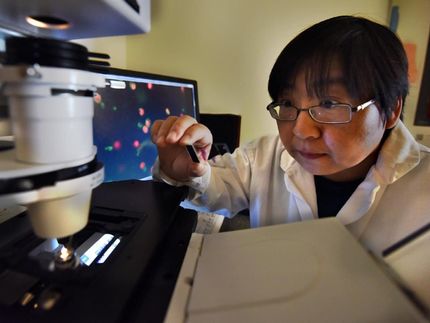Dendreon To Acquire Corvas
Advertisement
Seattle, WA and San Diego, CA, February 25, 2003 -- Dendreon and Corvas, jointly announced today that they have signed a definitive merger agreement under which Dendreon will acquire Corvas in a strategic transaction that creates a combined company with a strong clinical and preclinical pipeline and significant financial resources to discover, develop and commercialize novel products that address unmet medical needs in treating cancer and cardiovascular disease.
Under the terms of the agreement, each share of Corvas common stock will be exchanged for a fixed ratio of 0.45 shares of Dendreon common stock in a tax-free reorganization. Based on Dendreon's closing share price of $5.79 on February 24, 2003, the transaction is valued at $72.9 million. The acquisition, which has been approved unanimously by the boards of directors of both companies, is subject to approval by the stockholders of each company. Following the closing of the acquisition, and payment of existing Corvas convertible debt, Dendreon is expected to have approximately $110 million in cash. Dendreon's existing stockholders will own approximately 68.6% of the combined company and Corvas' existing stockholders will own approximately 31.4%. The transaction is anticipated to close in the second quarter of 2003, subject to approval by stockholders of both companies.
"This acquisition creates a company with multiple product opportunities addressing two of the largest patient populations in healthcare: cancer and cardiovascular disease," said Dr. Mitchell H. Gold, CEO of Dendreon, who will continue as CEO of the combined company. "Importantly for our near-term success, this deal enables us to continue our intense efforts to bring Provenge, Dendreon's Phase III investigational therapeutic vaccine for the treatment of prostate cancer, to those patients suffering from advanced androgen independent prostate cancer who have few, if any, alternatives for treatment. We also look forward to continuing clinical development of rNAPc2 in ongoing Phase II clinical trials for patients with acute coronary syndromes."
"An important attraction to us is Corvas' leadership in the field of serine proteases. We recognized the synergies to be gained by combining two very potent oncology programs," added Dr. Gold. "We now have multiple future product opportunities in the field of serine proteases, including small molecule inhibitors, antibodies and promising protease activated pro-drugs. We believe that these programs will play a significant role in shaping the future of oncology medicine. This acquisition strengthens our collective research capabilities, particularly in medicinal chemistry, small molecule research and protease activated cancer therapeutics, which should accelerate our company's product development efforts. We will now have R&D capabilities in two biotech hubs, Seattle and San Diego, to create assets that will fuel the growth of the company by significantly expanding our product portfolio."
"We believe that this deal creates greater long-term value for Corvas and Dendreon stockholders, not only because it establishes an integrated, multi-disciplinary biotechnology company with experienced management and significant financial resources, but also because it brings together complementary strengths in research and product development," said Randall E. Woods, Corvas' CEO.
Needham & Company, Inc. and SG Cowen Securities Corporation advised Dendreon, and Lazard Freres and Company advised Corvas on this transaction.
Expanded Cancer Pipeline
Dendreon recently announced encouraging data from its first placebo controlled Phase III trial of Provenge, its investigational therapeutic vaccine for the treatment of prostate cancer. These results enabled the company to work with the U.S. Food and Drug Administration to establish a pathway for a pivotal Phase III trial program for this product candidate. New product opportunities also are expected to emerge from the company's vaccine platform, including APC8024 for breast, colon and ovarian cancers, which is completing Phase I clinical testing and from its comprehensive collaboration with Genentech on its Trp-p8 gene platform. Corvas' preclinical pipeline includes protease activated cancer therapies and serine protease inhibitors that also are expected to enhance Dendreon's efforts to establish itself as a leading developer of cancer therapeutics.
Potential New Product Opportunity in Cardiovascular Disease
Corvas recently announced the start of a multi-center, Phase II clinical program to investigate the safety and efficacy of its proprietary anticoagulant, recombinant nematode anticoagulant protein rNAPc2, in patients with acute coronary syndromes (ACS), which include unstable angina and non-ST-segment elevation myocardial infarction. The objective of the clinical program, referred to as ANTHEM/TIMI 32, is to establish a safe and effective dose of rNAPc2 in moderate to high-risk patients with ACS. The Phase II program is designed to be conducted in three parts, each of which will investigate rNAPc2 in combination with current anticoagulant and anti-platelet therapies.
Other news from the department business & finance
Most read news
More news from our other portals
See the theme worlds for related content
Topic world Antibodies
Antibodies are specialized molecules of our immune system that can specifically recognize and neutralize pathogens or foreign substances. Antibody research in biotech and pharma has recognized this natural defense potential and is working intensively to make it therapeutically useful. From monoclonal antibodies used against cancer or autoimmune diseases to antibody-drug conjugates that specifically transport drugs to disease cells - the possibilities are enormous

Topic world Antibodies
Antibodies are specialized molecules of our immune system that can specifically recognize and neutralize pathogens or foreign substances. Antibody research in biotech and pharma has recognized this natural defense potential and is working intensively to make it therapeutically useful. From monoclonal antibodies used against cancer or autoimmune diseases to antibody-drug conjugates that specifically transport drugs to disease cells - the possibilities are enormous
























































